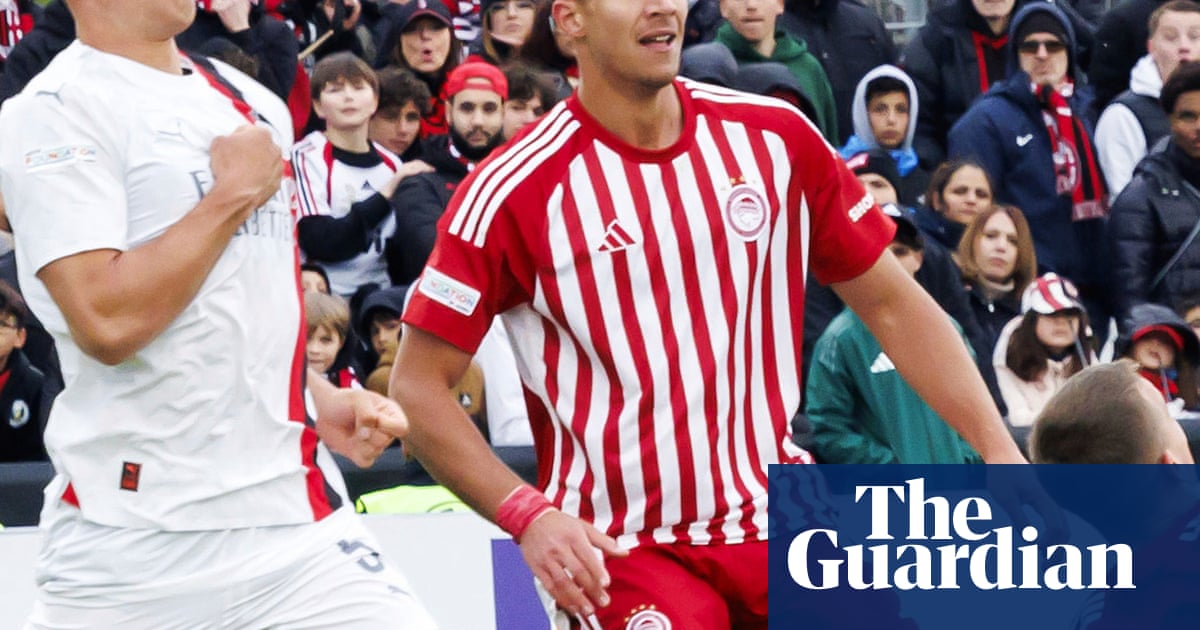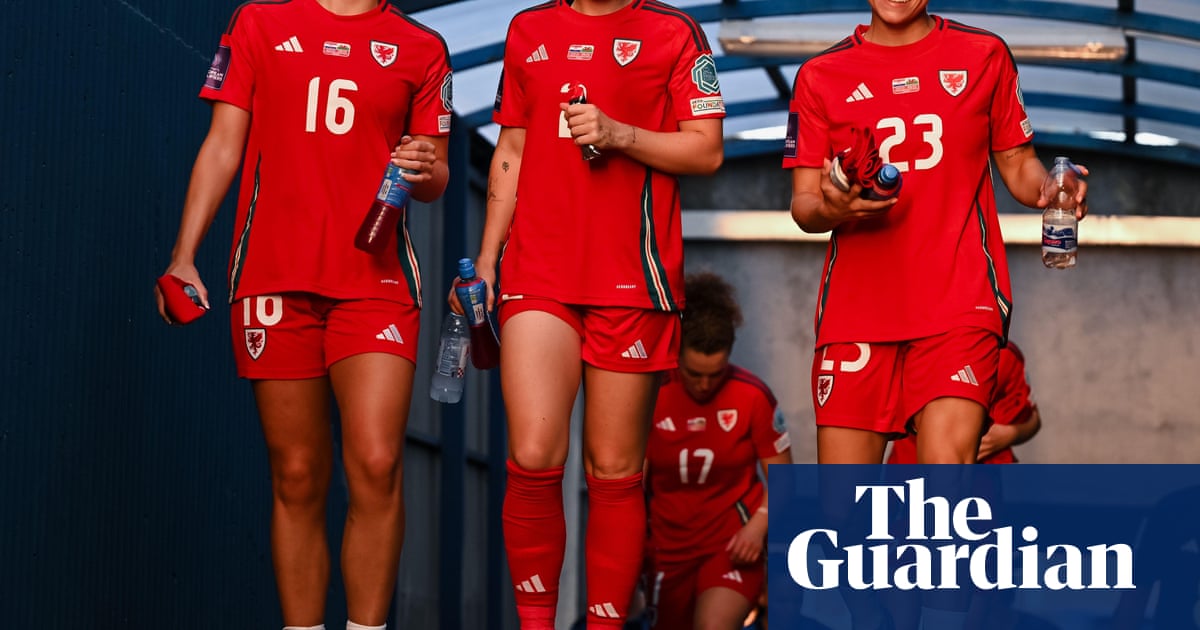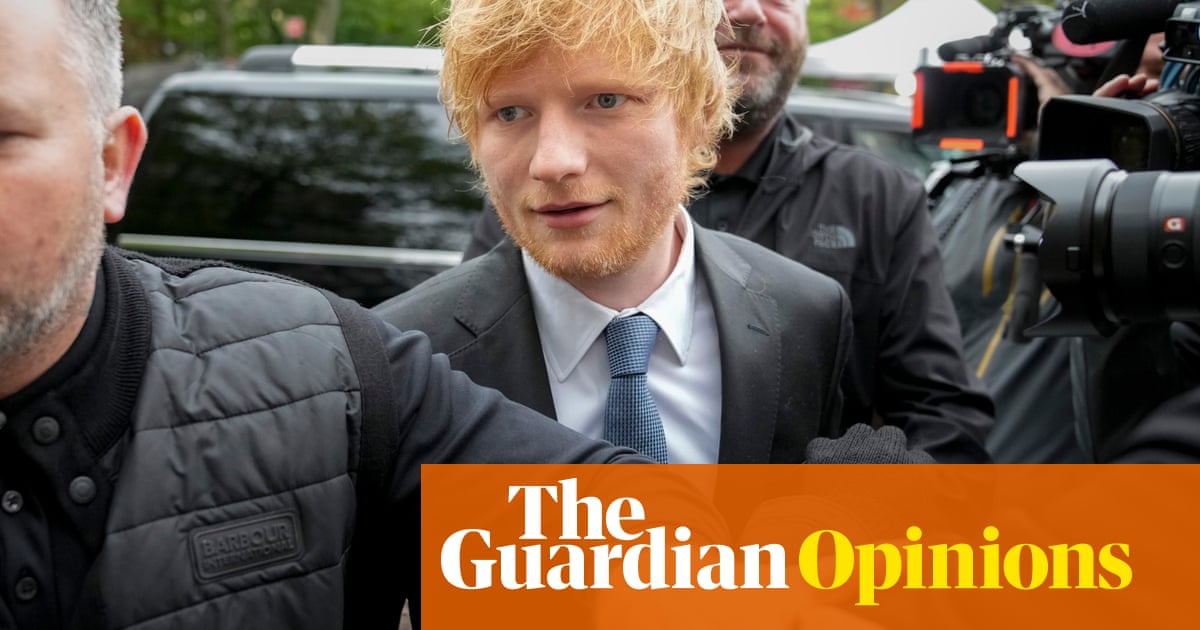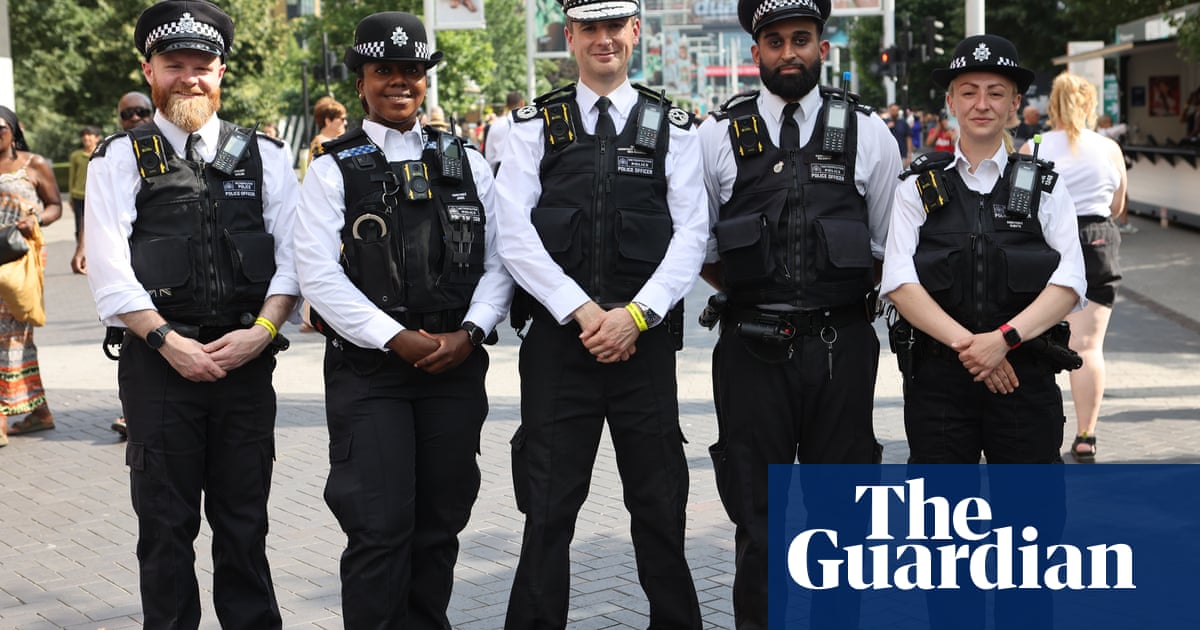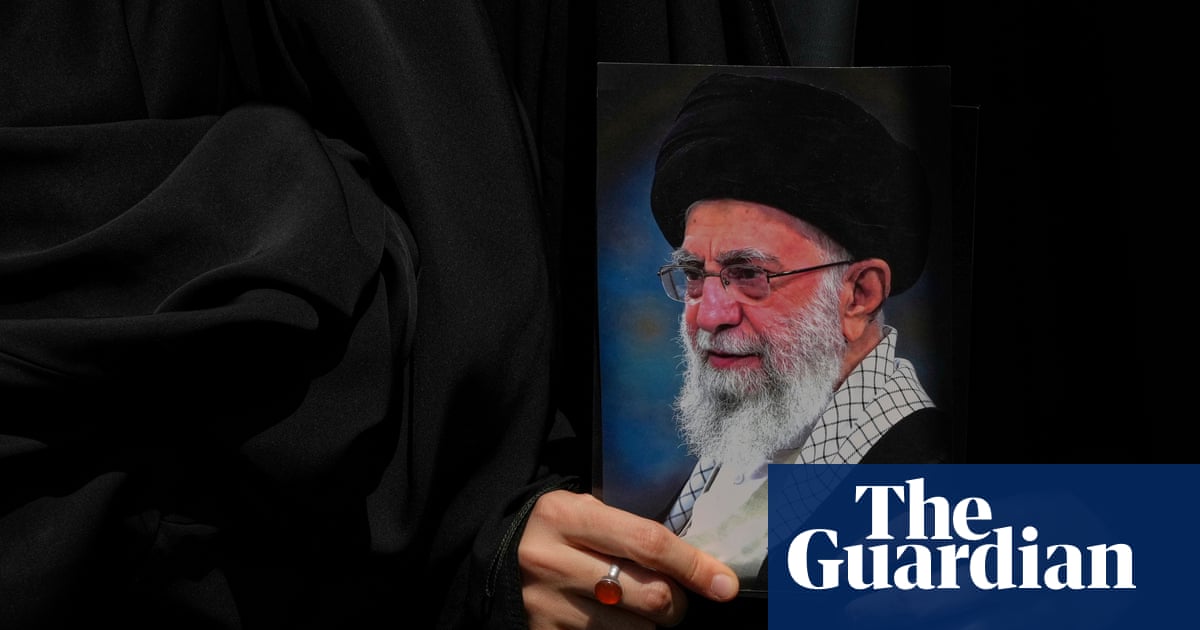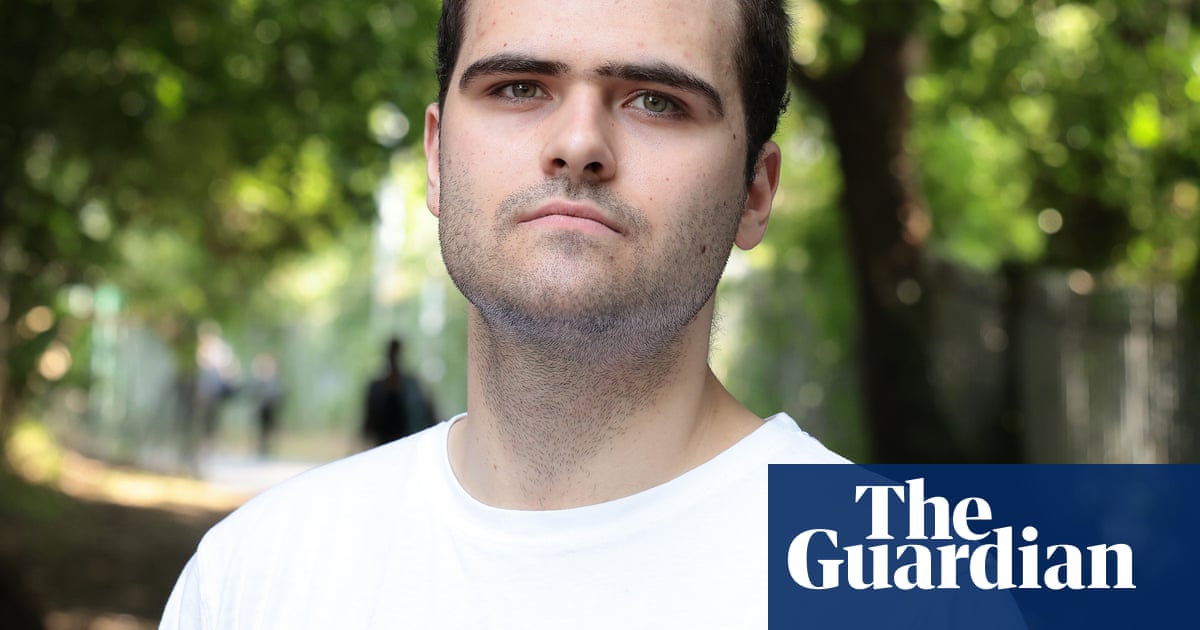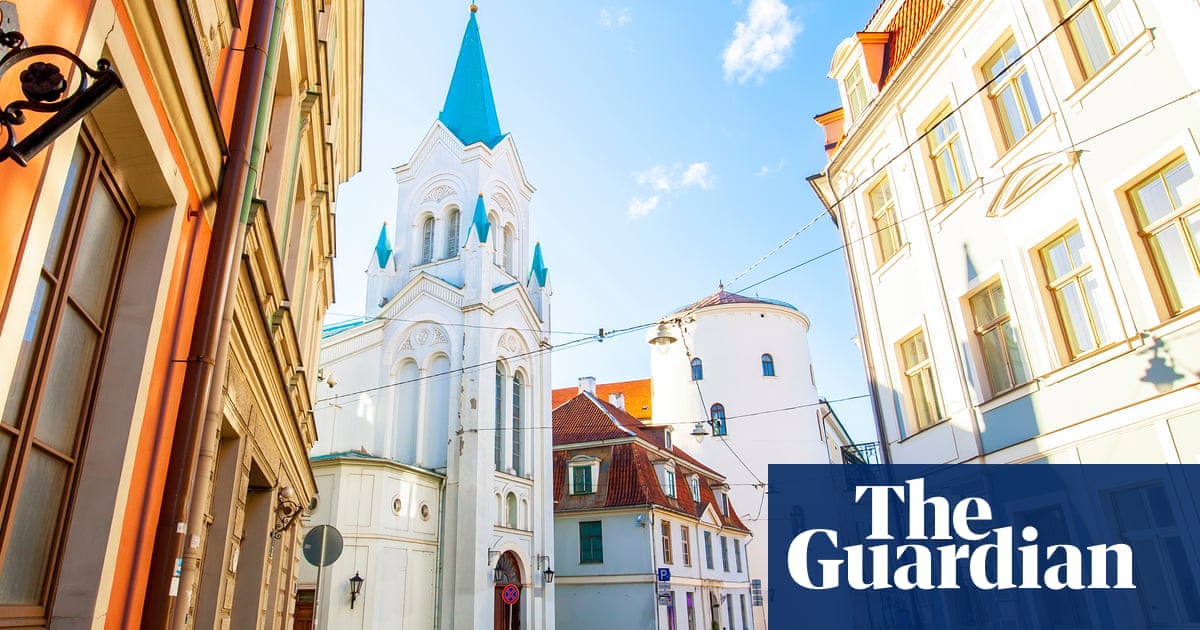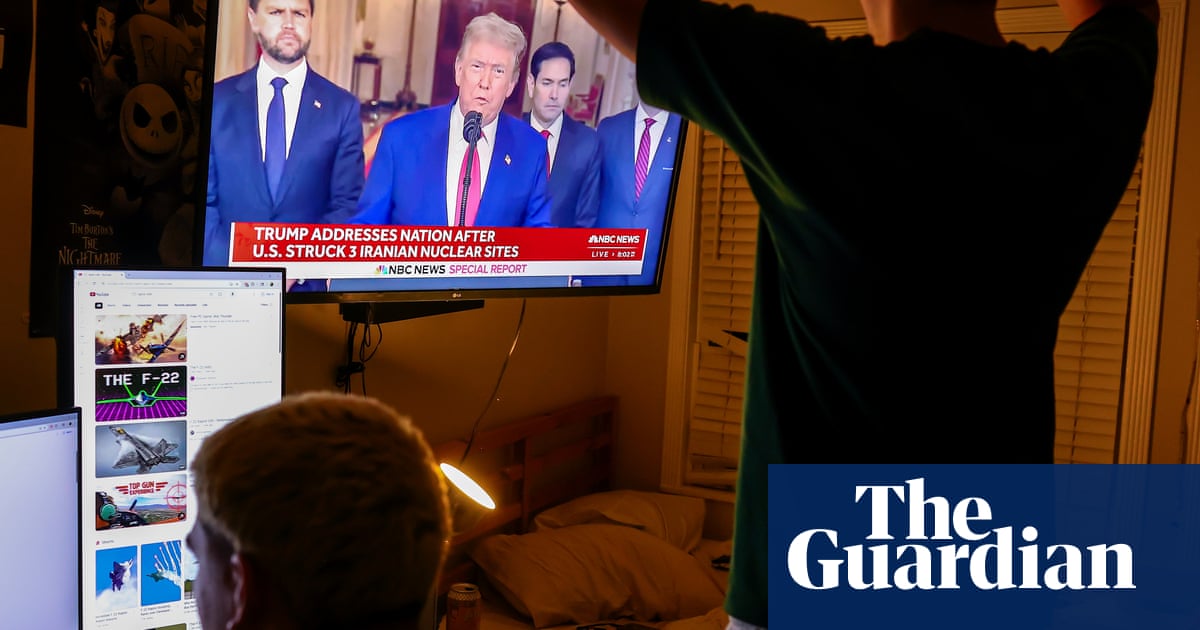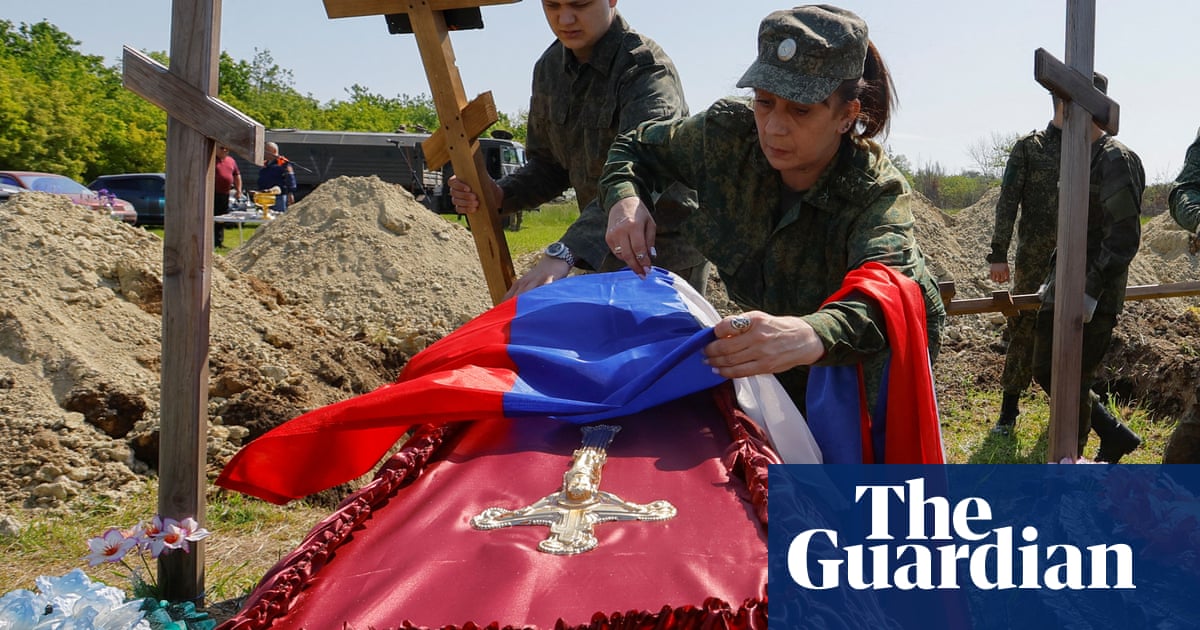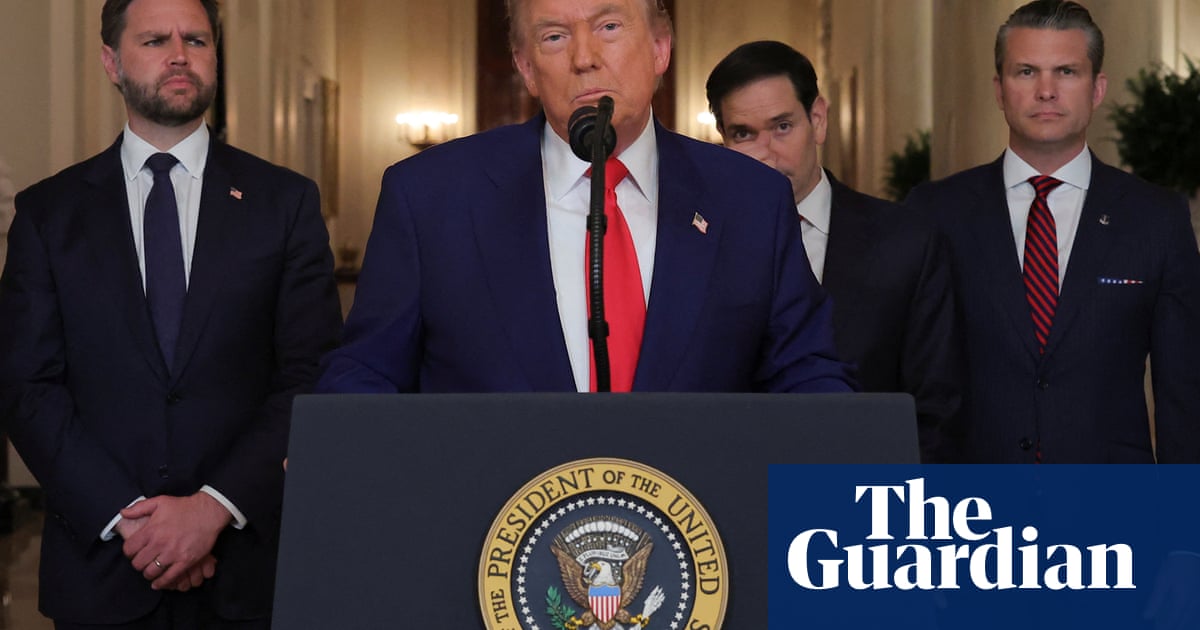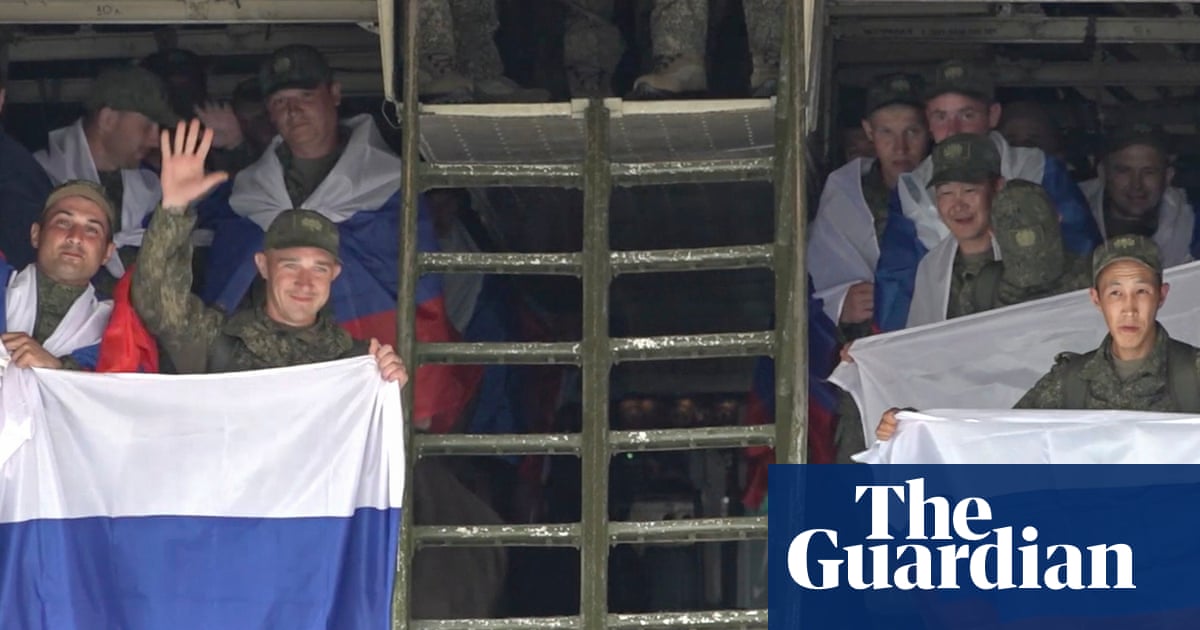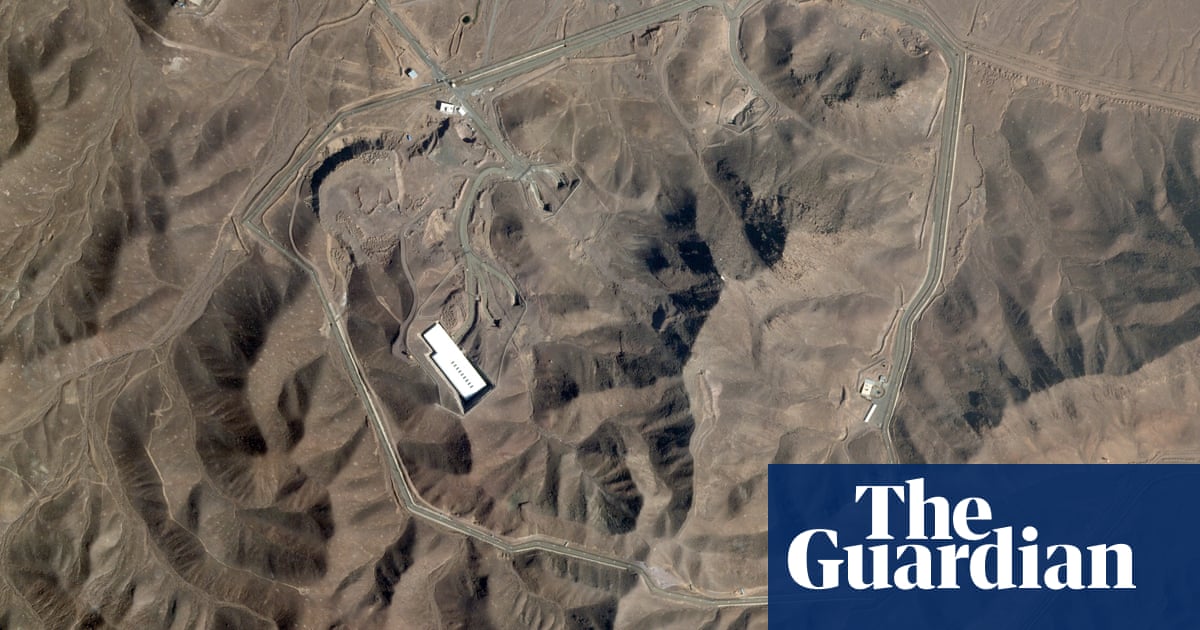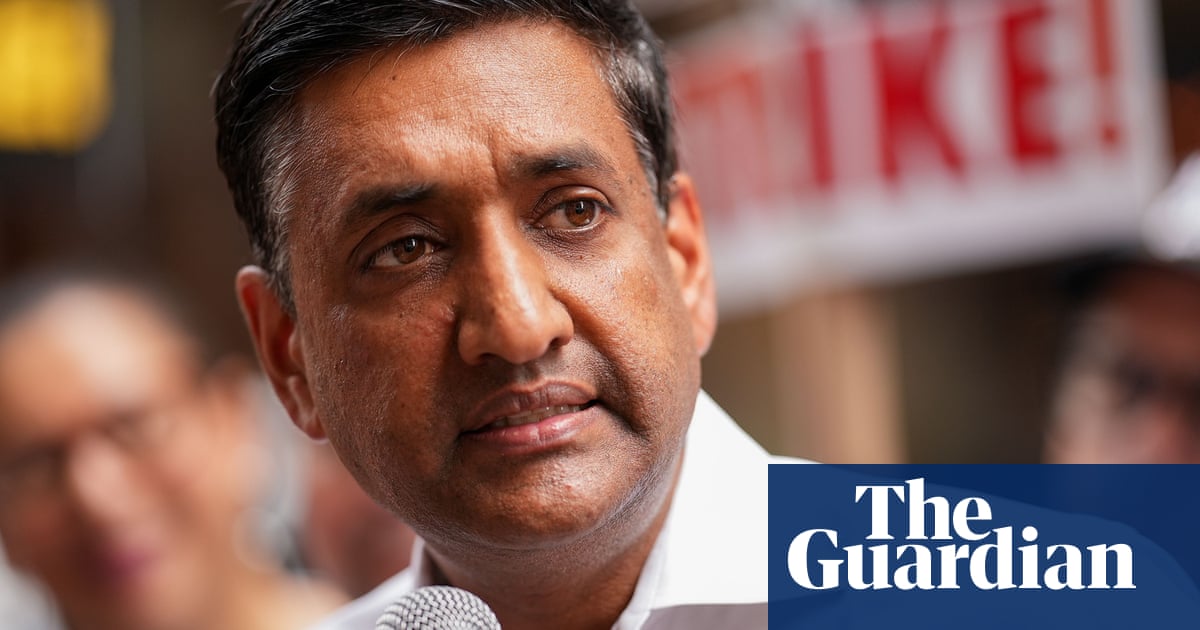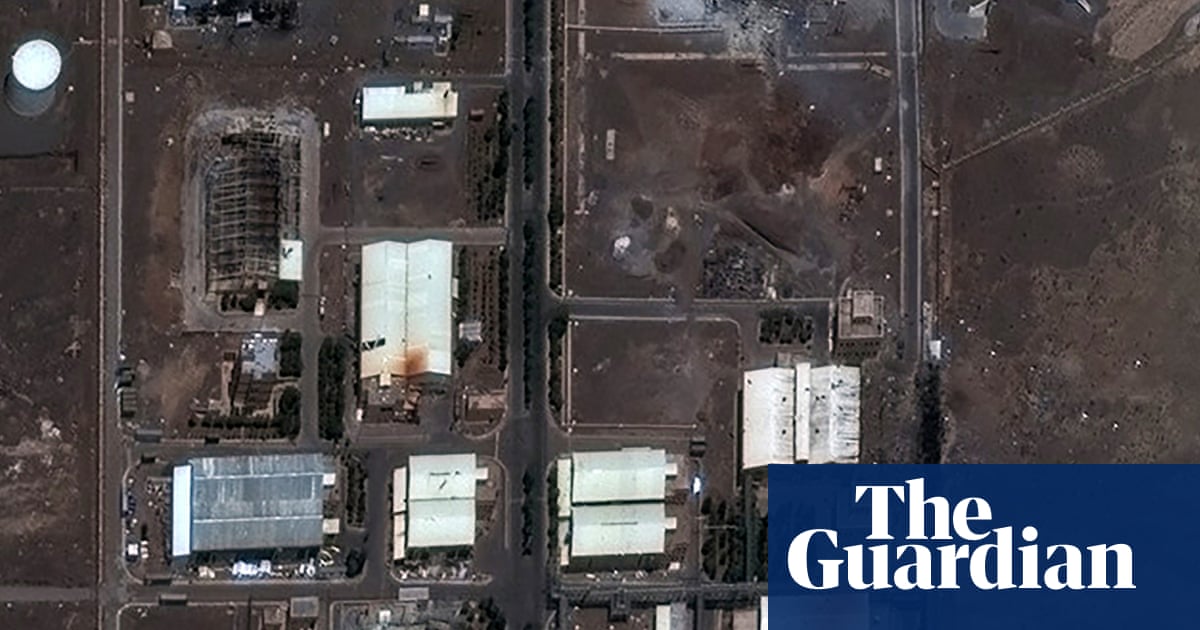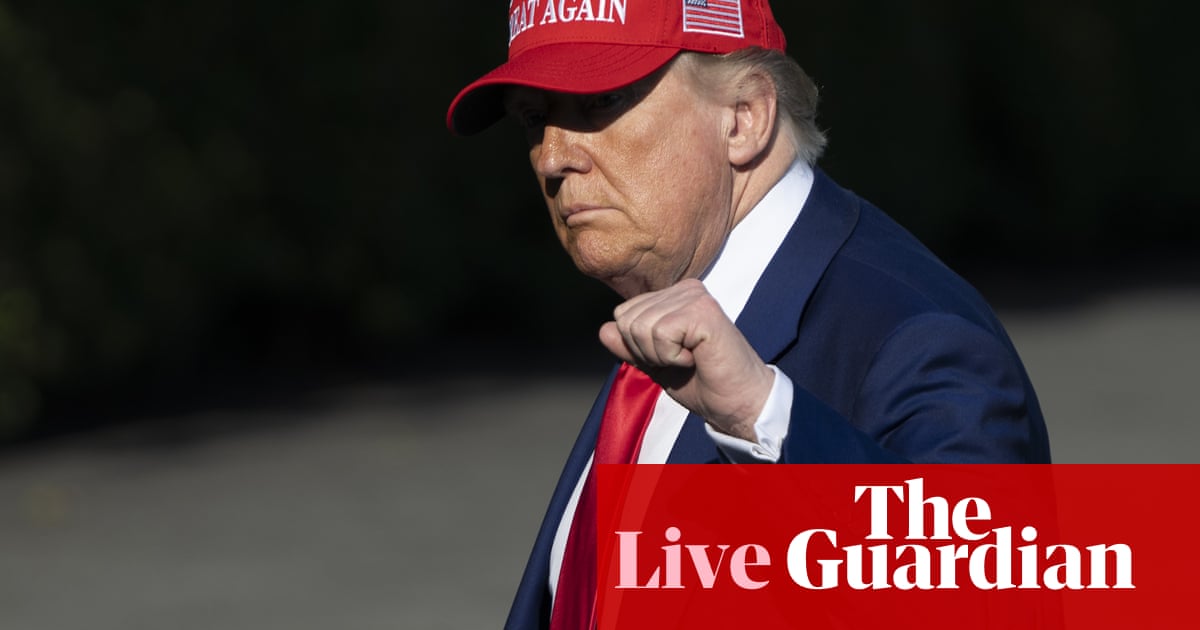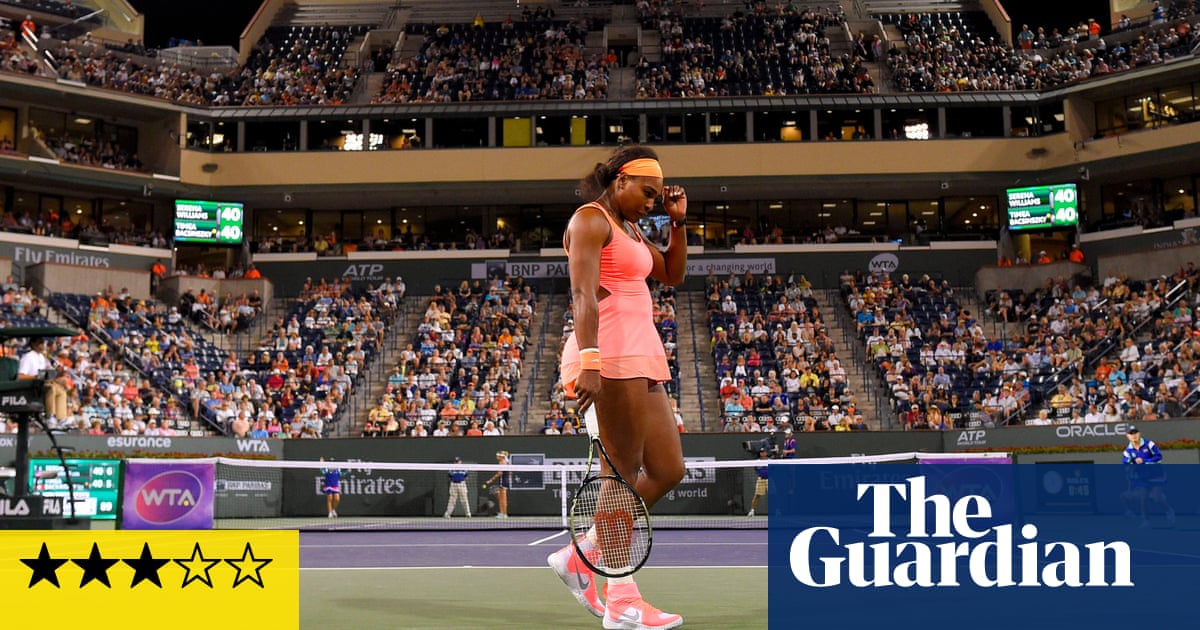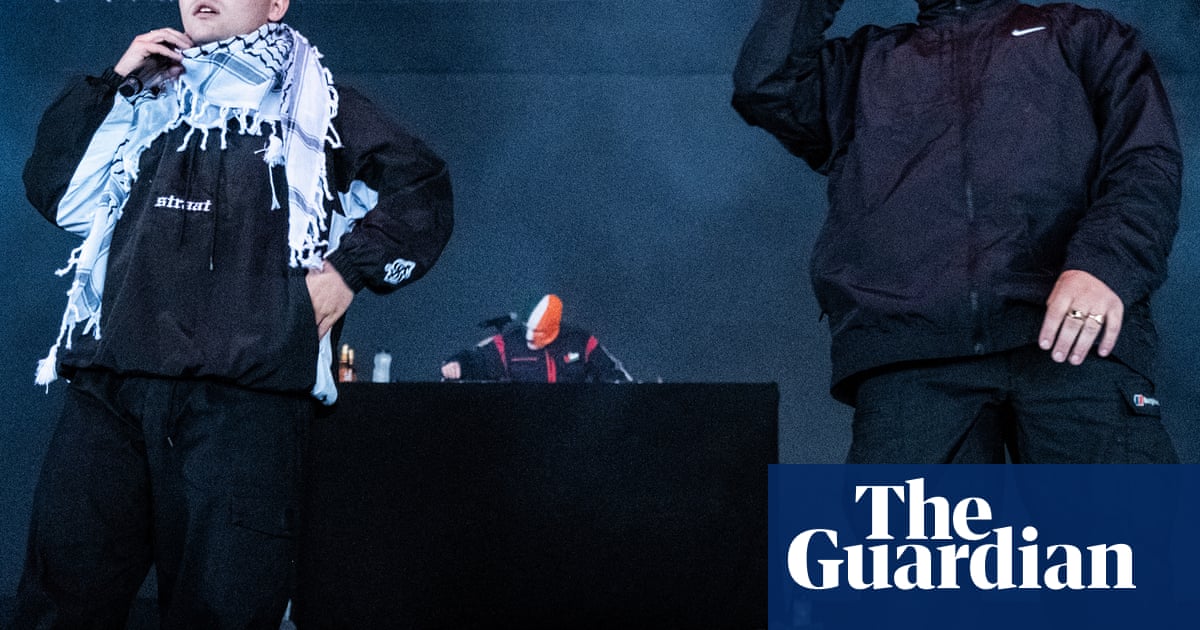On the Saturday in late March this year that FC United of Manchester and The 1958, a Manchester United supporters group, held a joint-action against 20 years of Glazer ownership of United, Tom Kerse displayed his own protest at Broadhurst Park, FC United’s home, which read: “The Glazers? FCUM Hall.” The 69-year-old, like many FC United fans, followed Manchester United before the American family’s leveraged purchase of the club in May 2005. “‘FCUM Hall’, as in ‘fuck all the Glazers’,” Kerse says, just in case anyone missed his point.
FC United were born 20 years ago on Tuesday, on 13 May 2005 in a Rusholme curry house named Dilda. Paul Hurst, a founder, is the board lead for communication and co-ownership, the latter a core value of the club, with all members having a vote on each key decision. “What we’ve seen [happen] at Manchester United is what we said [would happen] 20 years ago,” Hurst says. “It’s maybe taken a bit longer, that’s all.”
Hurst is referencing two decades of troubled ownership that currently sees six Glazer siblings as majority owners at Old Trafford, Sir Jim Ratcliffe’s 28.94% share the largest single individual holding, £750m worth of debt plus £300m outstanding in unpaid transfer fees, plus a £300m loss in the past three years. There will also be up to 450 redundancies when the latest round is executed, while Ruben Amorim’s team may be in the Europa League final but are also 16th in the Premier League following Sunday’s 2-0 home loss to West Ham.
When Malcolm Glazer completed his leveraged purchase of United on 12 May 2005 he loaded around £694m debt on to the club and compelled a coterie of disgruntled supporters to found a breakaway club. Officially incepted on 14 June 2005 and swiftly accepted into The Moore & Co Construction Solicitors League four days later, FC United’s inaugural game was a goalless friendly with Leigh RMI on 16 July, with a first competitive victory coming against Leek on 13 August.
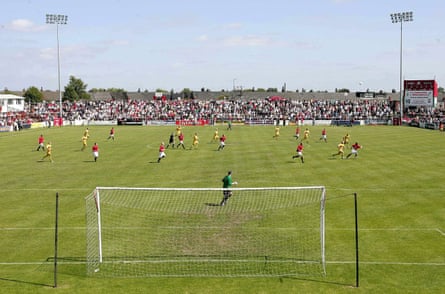
FC United first trained at Parrs Wood High School in east Didsbury. All squad members had full-time jobs – midfielder and captain Billy McCartney was a scaffolding supervisor – and were led by Karl Marginson, a Manchester-born former midfielder whose teams included Macclesfield Town, Stalybridge Celtic and Salford City. Initially ground-sharing at Bury’s Gigg Lane, they moved to Broadhurst Park, located in Moston, in 2014, and under Marginson achieved promotions in each of their first three seasons. FC United won the 2005-06 North West Counties Division Two championship with 87 points, eight points clear of second place. They then romped to the Division One crown the following year with 112 points from 42 games before going up from the Northern Premier League Division One North via a 4-1 playoff final win over Skelmersdale, having finished one point behind champions Bradford Park Avenue in the regular season.
“There were rumours after the Glazer takeover that fans were going to form their own team,” says Marginson, who also led FC United to a memorable 3-2 defeat of Rochdale in the first round of the FA Cup in 2010 before departing from the manager’s job eight years later. “I met a couple of lads called John-Paul O’Neill and Luc Zentar in a bowling green in Chorlton and talked football. From there, everything moved very quickly.”
Of the Leigh RMI friendly, Marginson says: “There were three streakers – all male. I don’t remember what they looked like, thankfully, and our fan culture was termed ‘punk football’. I remember speaking to people and if they didn’t have a sore throat at the end of the game, they felt as though they’d let the team down.”
FC United attracted – and still do – formidable crowds: 2,552 watched the Leigh RMI friendly, while 2,357 were in attendance for the 1-0 defeat to Stockton Town, following the joint-protest with The 1958 a couple of months ago.
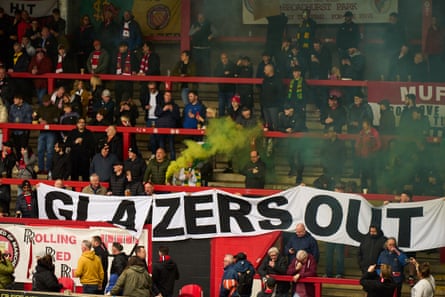
Yet as FC United grew, the search for their own ground precipitated a financial crisis in 2015 that led the following year to the departures of general manager, Andy Walsh, as well as Adam Brown, another founder member. “You had people in charge that were trying to get us in here [Broadhurst Park] and in their desperation, decisions were made which put the club at risk,” explains Nick Boom, FC United’s current chair. “There was a clamour to build our own ground and originally it was going to be at Ten Acres Lane at Newton Heath – and you know the symbolism of that.” Manchester United were originally known as Newton Heath LYR Football Club upon their formation in 1878.
On 25 November 2010, FC United announced they had been granted planning approval “to develop a 5,000-capacity ground and community sports complex” at the Ten Acres site. “This is testament to the hard work and support we have received from New East Manchester and Manchester city council, in particular the help and guidance from the planning department,” Walsh said at the time. But the dream soured, Boom says, due to Ten Acres being in close proximity to Manchester United’s crosstown rival. “The owners at Manchester City didn’t want a club related to Manchester United within Oldham Road [too], because they wanted to develop their area,” he explains. “The leverage they had is that the Etihad [Stadium] is owned by Manchester city council and they wanted to extend [the lease].”
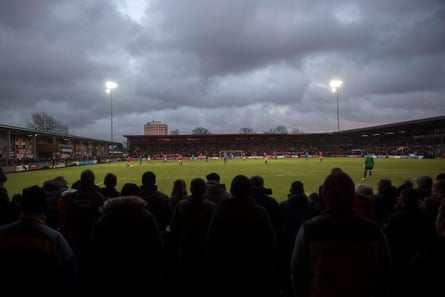
Walsh drove the funding initiative for Broadhurst Park. Around £2m of the required £6.3m was raised by fans’ investment, with this unlocking a further £3m of finance. Construction began on the 4,000-capacity venue in November 2013 and was completed in May 2015, with the 2-1 National League North defeat by Stockport on 11 August 2015 the first competitive fixture to take place there.
after newsletter promotion
However, further financial missteps occurred. “Commodity prices went up,” Boom says. “There was a judicial review for this site which also delayed it and cost more. And they [former board members] up-sized the business plan and said: ‘Oh, we’ll make more on the merchandise.’ It was unrealistic.”
A period of in-fighting ended with Walsh departing in March 2016, Brown the next month, claiming a “hate campaign” had been launched against him and chief fundraiser, Andy Walker. In May of that year more board members resigned, claiming: “Staff members and volunteers alike have at various times come to fear for their own safety.”
Boom, who had been volunteering for FC United since its inception, left his banking job in 2017 and became part of the new board the following year. By then Marginson had also left. “I stood firm with the outgoing board,” he says. “I don’t think that went down too well with the incoming board. It was time for a change.”
The 54-year-old Marginson is now manager of Trafford FC. His job at FC United, meanwhile, is now occupied by Mark Beesley, who took charge last September and has just guided the team to 17th of 22 and safety in the Northern Premier League Premier Division. “It’s a unique club,” the 44-year-old says. “The values they bring. It’s a club that needs a bit of direction and hopefully I can give that on the pitch.”
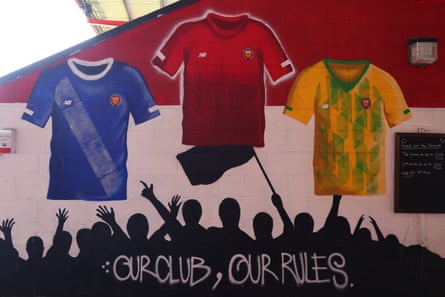
In April, those values led to Eric Cantona becoming a member of the club, alongside his four children and two brothers. When doing so, the Frenchman criticised the Glazers’ and Ratcliffe ownership of the club where he enjoyed so much success and adoration. “I support [Manchester] United because I really love United, but now if I was a fan and had to choose a club I don’t think I would choose United,” he said.
“I was a Man United fan and probably wasn’t aware of FC United until I was about 18, 19,” says Charlie Ennis, FC United’s current 35-year-old captain. “It’s an amazing club – I describe it as the best non-league club. So to be seen as one of the leaders is definitely something I don’t take for granted and I’m proud of. And my family comes to all the games. The kids walk me out on to the pitch on Saturday. And all these types of things are stuff that’s a real bonus of playing for a club like FC United.”

 1 month ago
50
1 month ago
50
